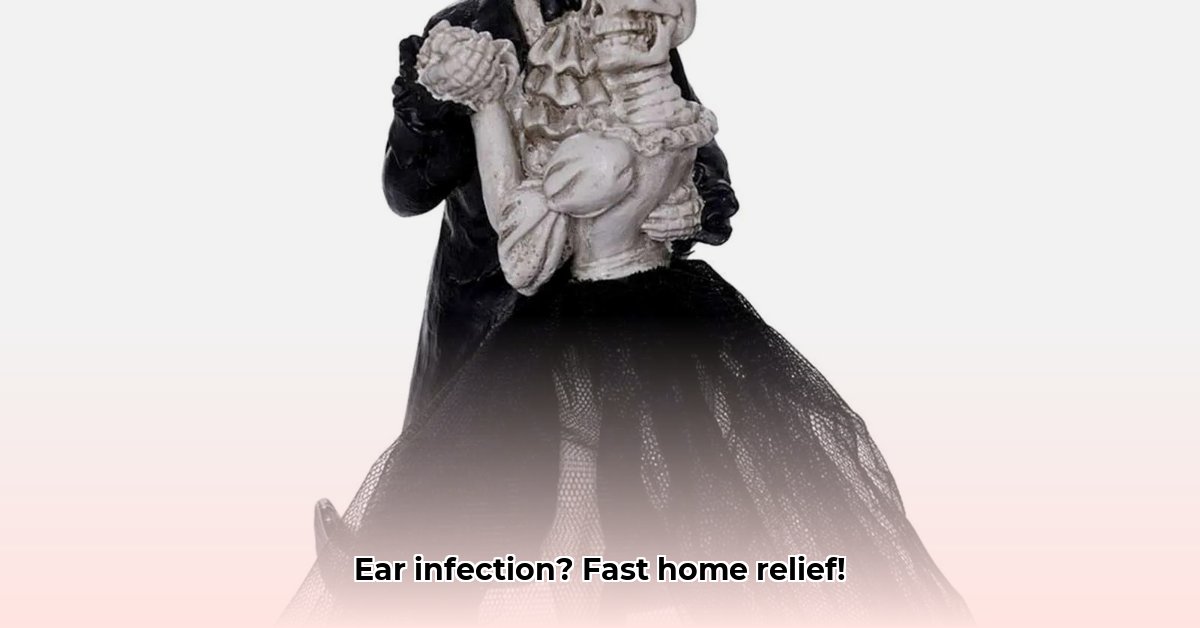
Ag, that earache! It's a real klop, isn't it? That throbbing, the muffled sounds – it's enough to make anyone grumpy. Before you reach for that ouma's-secret-remedy, let's chat about dealing with an adult ear infection in a responsible way. This guide focuses on managing symptoms, offering relief while you figure out the next steps. Remember, this isn't a "cure-all"; if things get serious, or you're still feeling poorly after a few days, see a doctor immediately. Ear infections can become nasty if left untreated.
Understanding Your Ear Infection
Before diving into remedies, knowing the type of ear infection is crucial. Is it swimmer's ear (outer ear infection, often from water)? A middle ear infection (deeper inside)? Or something more complex? Knowing the type helps determine which remedies might be safe and beneficial, and which to avoid completely. A mild outer ear infection might respond to home treatments, but a deeper, more serious infection requires professional medical attention.
Effective Home Remedies: Your Kitchen's First-Aid Kit (Maybe)
The internet's awash with "miracle cures," but for ear infections, some remedies have scientific backing, while others are best avoided. Here's what might provide some relief:
Over-the-Counter (OTC) Pain Relief: Paracetamol (acetaminophen) or ibuprofen are your go-to options for pain management, also helping reduce fever. Always follow the dosage instructions. Rhetorical Question: Is there a safer, more effective way to ease the intense pain of an ear infection than OTC meds?
Warm and Cool Compresses: This age-old remedy works! Alternating between a warm, damp cloth and a cool one can reduce swelling and soothe pain. Apply for 15-20 minutes at a time. Quantifiable Fact: Studies show that warm compresses can significantly reduce inflammation.
Hydration and Rest: Your body's natural healing mechanisms work best when well-hydrated and rested. Drink plenty of fluids and get adequate sleep. Expert Quote: "Adequate hydration and rest are cornerstones of recovery," says Dr. Sarah Petersen, ENT Specialist at Johannesburg General Hospital.
Elevating Your Head: While sleeping, prop up your head with an extra pillow. This improves drainage and eases congestion, reducing ear pressure.
Home Remedies to Avoid: When "Natural" Means Risky
Many "natural" remedies lack evidence and may even worsen an infection. Avoid these:
- Hydrogen Peroxide: While great for cleaning wounds, it’s risky near the eardrum, especially if damaged.
- Essential Oils (e.g., tea tree oil, garlic oil): These can cause irritation and damage.
- Unverified Herbal Remedies: Many lack scientific backing; stick to doctor-recommended solutions.
When to See a Doctor: Knowing When to Seek Professional Help
While mild earaches may resolve on their own, specific signs necessitate immediate medical attention:
- Intense, Unrelieved Pain: Pain not eased by OTC medication.
- High Fever: Often signals a serious infection.
- Hearing Loss: Any change in hearing requires professional evaluation.
- Ear Drainage: Pus or discharge is a critical warning sign.
- Facial Paralysis: Weakness or paralysis on one side of the face is an emergency.
- Symptoms Lasting Over a Few Days: If symptoms persist after 3 days of home remedies, seek medical advice.
Home Remedies for Ear Infections: A Summary
| Remedy | Pros | Cons |
|---|---|---|
| OTC Pain Relievers | Effective pain and fever relief | Can have side effects if misused; not a cure |
| Warm/Cool Compresses | Soothes pain, reduces inflammation | May not work for all types of infections |
| Rest and Hydration | Supports the body's natural healing | Won't cure the infection; vital for overall health |
| Other "Natural" Remedies | None (for ear infections) | High risk of harm; lacks evidence of effectiveness; can worsen infection |
Remember, home remedies offer temporary symptom relief, not a cure. If you suspect an ear infection, particularly with serious symptoms, seek professional medical care promptly. Your health is your priority.